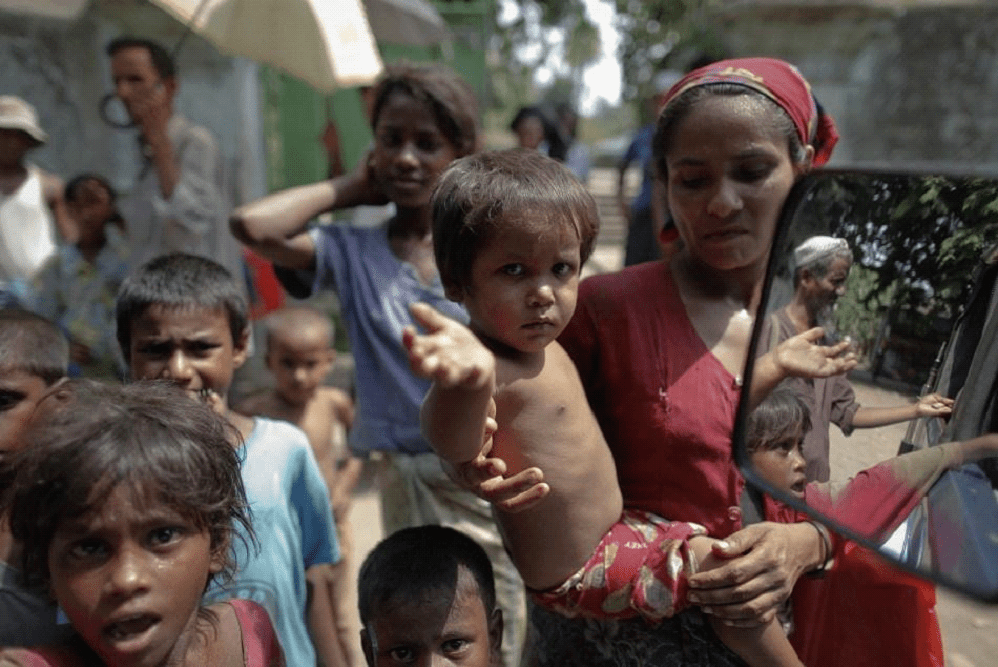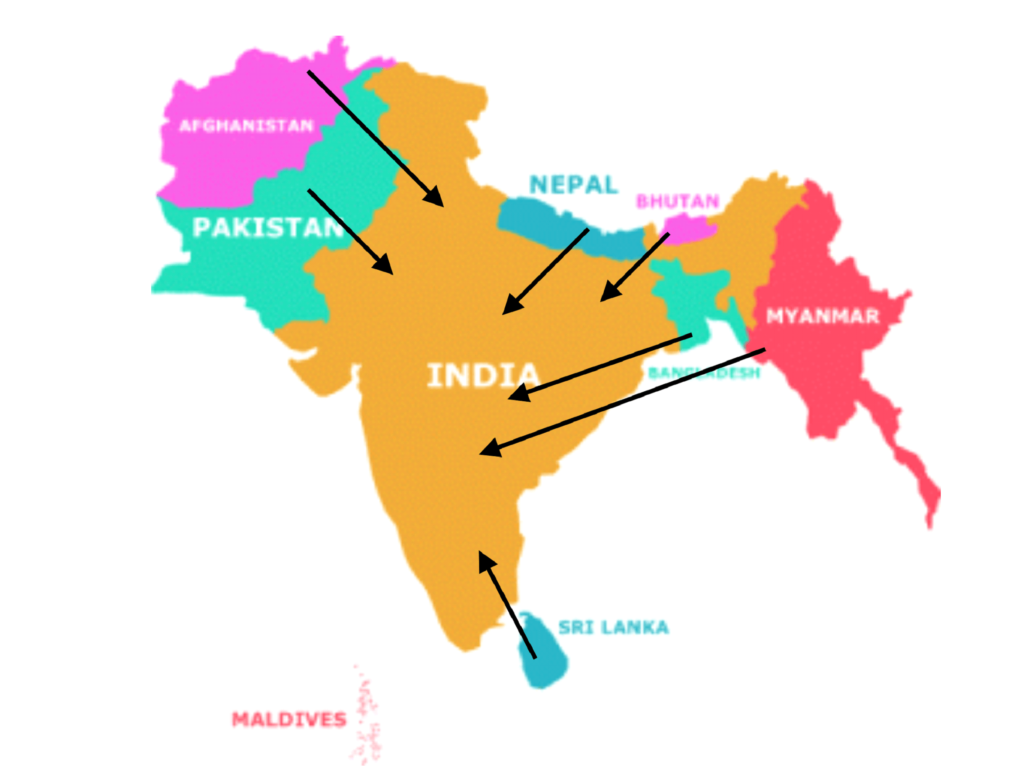
“I know people are troubled by the lockdown but think about it: you have the safety of a home and we don’t. We are living in an open space in tents without our basic rights. It is something the world needs to reflect on.”
25 Year old Sabbar Ifran, Rohingya Human Rights Initiative (The Diplomat)
It took a global pandemic for India to realize the importance of safety net programs to protect its poor and vulnerable. The lockdown in India had a catastrophic effect on the migrant workers. Thousands of daily workers were stranded in cities without any source of income and their only choice was to walk back home to their villages. The state governments did their best to provide food and water to these workers during their transit and the national government announced a relief package to ease their burden but between ‘social distancing’ and a financial package we have forgotten about the migrants that left their countries to seek refuge in India.
The Refugees of India
India is home to millions of refugees. The country has been receiving refugees ever since the partition in 1947 and has refugees coming from countries like Afghanistan, Pakistan, Myanmar, Bangladesh, Sri Lanka and other neighboring countries. According to UNHCR, India has 2,07,070 persons of concern, out of which 1,97,851 are refugees and 9,219 asylum seekers. During the Rohingya crisis in 2015, 40000 Rohingya muslims escaped Myanmar to take refuge in India and the country also hosts around 14,000 refugees from Afghanistan. While Rohingya and Afghan refugees make up the majority of the refugee population, people from the Middle East, Africa and Sri Lanka also have been residing in India. Despite hosting the largest population of refugees in all of South Asia, India does not have strong laws to protect them in the country. India has not ratified the UN refugee convention of 1951 or 1967 which aims to protect refugees.

The impact of COVID-19 on the refugees
The refugee settlements in India are at a high risk for contracting coronavirus due to their living conditions. The settlements are cramped in small spaces with poor sanitation facilities. The Rohingya refugees in particular are considered stateless due to which their access to healthcare is limited. Ever since the nationwide lockdown the Rohignyas have not had access to money or food. The government launched programs to support the migrant workers and the poor by providing them with free meals and ration but this has not reached the refugees. Like the Rohingyas, the Afghans are also considered stateless by the Indian government and are therefore not receiving any basic support from the government. Without any protective gear, a single person with coronavirus can infect the entire refugee settlement. Social distancing and basic hygiene are a challenge to the refugee settlements. Completely ignored by the Indian Government, the refugees are receiving limited support from UNHCR and local NGOs. According to Save the Children, a UNHCR affiliated NGO that is working with the Rohingya refugees in Hyderabad, they have been facing a lot of challenges in procuring essentials and are appealing to the State Government for support. Another concern among the refugees is the lack of masks and social distancing in the settlement areas.
UNHCR along with its partners has conducted sensitization programs for the refugees over the past few weeks. However, according to their mandate, the organization in India does not provide any emergency humanitarian assistance to the refugees. Therefore it is upto the local ngos, private sector and the government to support these vulnerable communities.
What can be done?
While the pandemic has posed challenges to governments and organizations all over the world, there is no justification to ignore the basic rights of the refugees and asylum seekers. The United Nations has stressed the need to protect refugees during this crisis by ensuring awareness among the settlements, providing them with protective gear like masks and soap and providing humanitarian aid. Recently, the United States has put a hold on their funding to the World Health Organization which will have a severe impact on providing support to vulnerable communities. Countries should refrain from doing the same especially to organizations like UNHCR that work towards improving the lives of refugees.
Most importantly, countries like India that lack a proper social protection mechanism should ensure that they include the refugees in their safety net programs. Recently, the Union Home Ministry requested all states and union territories to screen the rohingya refugees living in their jurisdiction. While this can be helpful in identifying the spread of coronavirus among these communities, it is also important that the government provides support in terms of food rations and money to the refugee settlements.
Note: The author is a Research Associate in PLF. The views referred to here are personal and does not refer to the institutional stand on it.

Leave a Reply